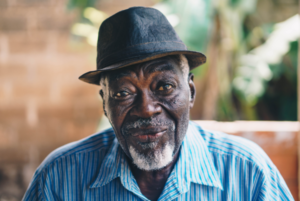 COVID-19 has proven to disproportionately affect racial and ethnic populations. Black and Hispanic individuals are about four times more likely to be hospitalized and nearly three times more likely to die from COVID-19. Systemic racism and social determinants of health have played a role in this egregious, unnecessary assault on human life. However, since COVID-19, we have witnessed systems, scientists, clinicians, and community come together to fight COVID-19. If we are going to decrease the inequities in our country, state or local communities, it’s imperative that we continue to engage through science, health policy, legislation, and community health in addressing the social determinants of health, informing policy and people, to create equitable care for everyone no matter what they look like, language they speak, their faith, or their ZIP code.
COVID-19 has proven to disproportionately affect racial and ethnic populations. Black and Hispanic individuals are about four times more likely to be hospitalized and nearly three times more likely to die from COVID-19. Systemic racism and social determinants of health have played a role in this egregious, unnecessary assault on human life. However, since COVID-19, we have witnessed systems, scientists, clinicians, and community come together to fight COVID-19. If we are going to decrease the inequities in our country, state or local communities, it’s imperative that we continue to engage through science, health policy, legislation, and community health in addressing the social determinants of health, informing policy and people, to create equitable care for everyone no matter what they look like, language they speak, their faith, or their ZIP code.
We now have a vaccine that has been developed and approved for distribution to help decrease the spread of COVID-19. It is needed for all populations, but especially our racial and ethnic populations, and those over 65 years of age. For racial and ethnic populations, because of systemic racism and the misuse of these communities of color in clinical trials, there has been a hesitancy and lack of trust in receiving the vaccine. However, science states that the COVID-19 vaccine has proven to be safe, is over 90% effective, and was tested in all populations. This vaccine will not alter your DNA; it will not give you COVID-19, because it is not a “live” virus; nor is there a micro-chip tracking device in the vaccine. These are myths without any scientific evidence. Getting the vaccine is a choice. Get information on the COVID-19 vaccine from reputable sources, like the Centers for Disease Control (CDC), and speak with your physician or health care provider, so you can make the best, informed decision. Information is always being updated on your local health department site. You can also learn more through the webinar, COVID-19 Vaccine and Minorities, hosted by the Indiana Minority Health Coalition, with renowned speakers: U.S. Surgeon General, Dr. Jerome Adams, Director of Marion County Public Health Department, Dr. Virginia Caine, and the Indiana Chief Medical Officer, Dr. Lindsay Weaver.
Let’s be intentional in educating ourselves and our communities so we can make informed decisions. Let us also continue to work together to address the health inequities, because every human being deserves to be factored positively into the equations of systemic policies for equitable service and health care. This is more than a public health issue—it’s a community issue. When it affects one, it can affect us all.
For more information, contact Tisha Reid, Director of Health Equity & Cancer Control at tireid@iu.edu.
Resources:
Indiana Department of Health
WISE Indiana
Centers for Disease Control(CDC)
CDC – COVID-19 Vaccinations
Mayo Health Clinic
IPIC COVID-19 Series: “Engaging the Community: COVID-19 and its impact on minority communities” – Gerardo Maupome, BDS, MSc, PhD & Tisha Reid, BSPHA, CHWC. (This Indiana Pandemic Information Collaborative (IPIC) seminar starts at 14:20 of recording.)
